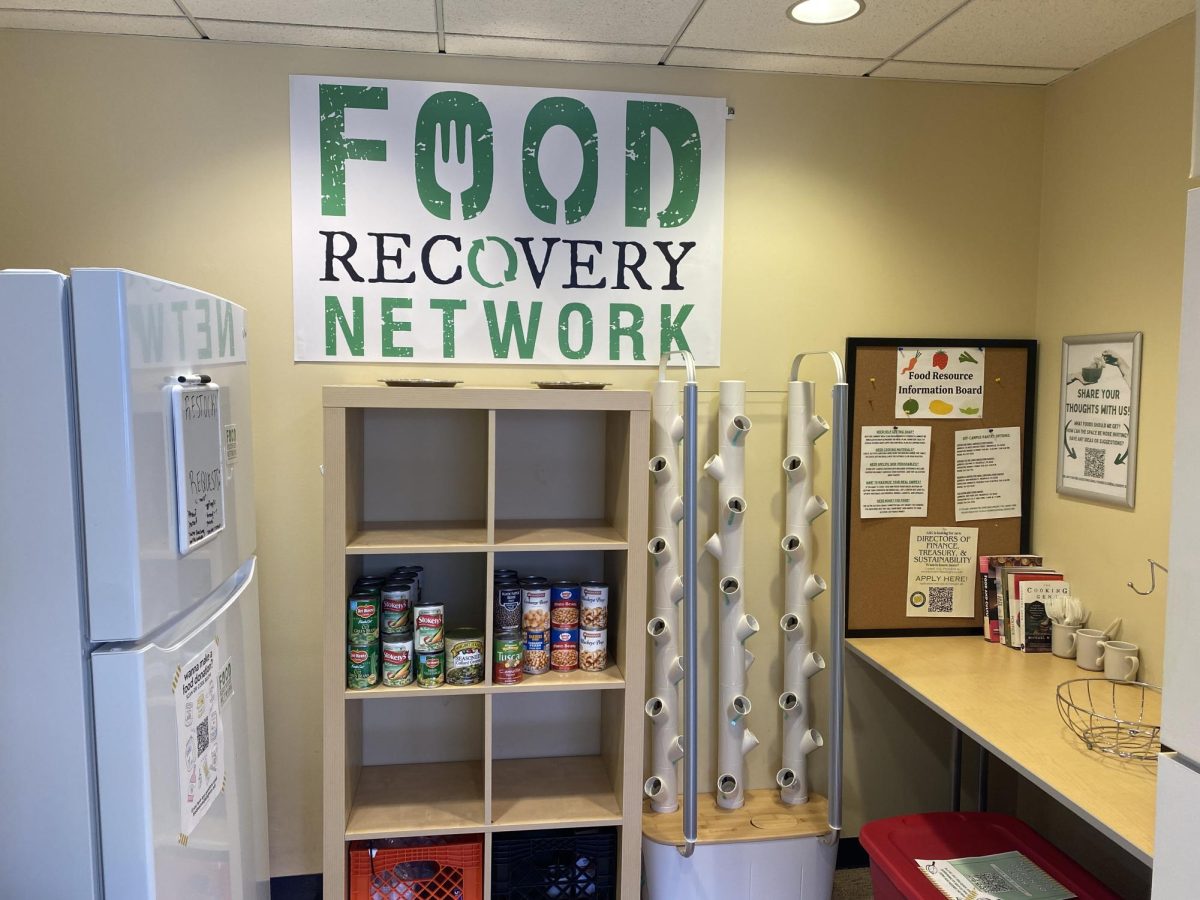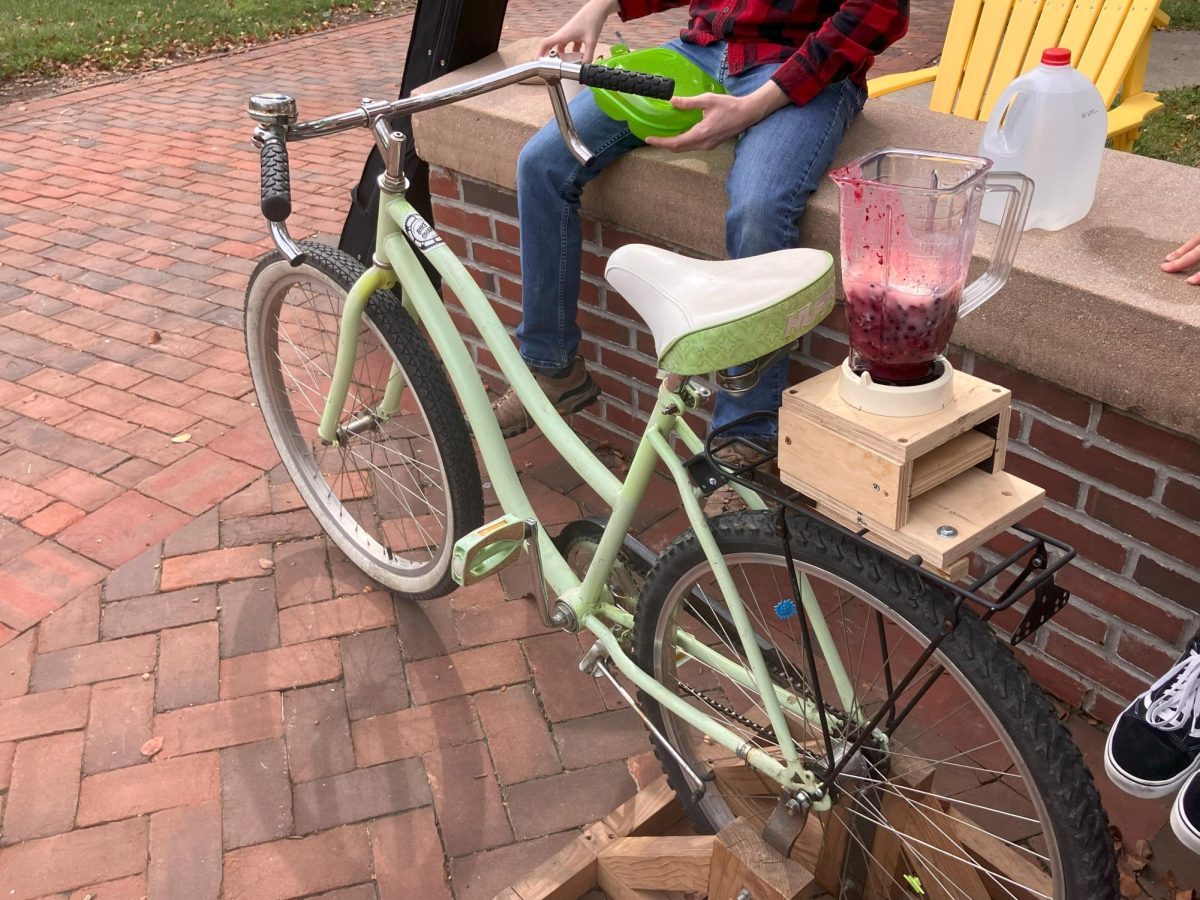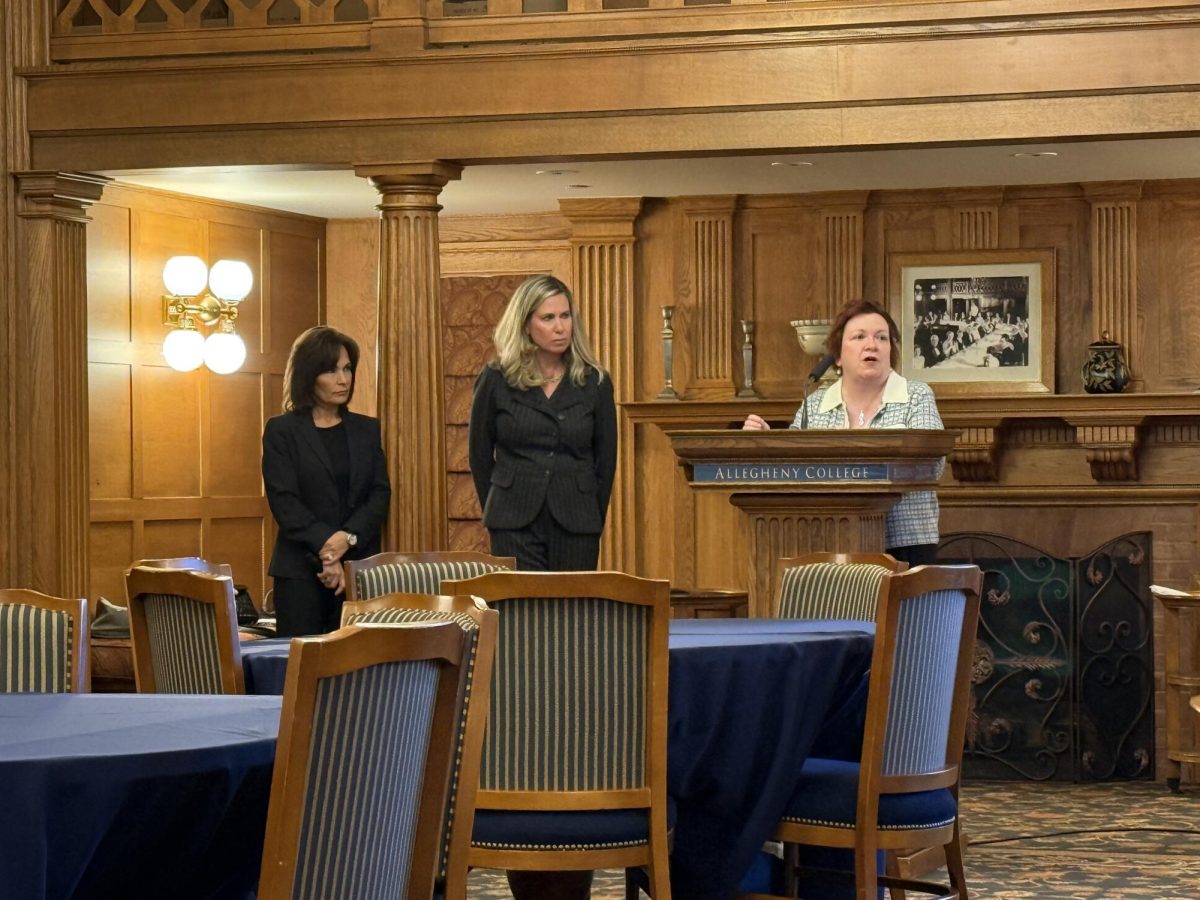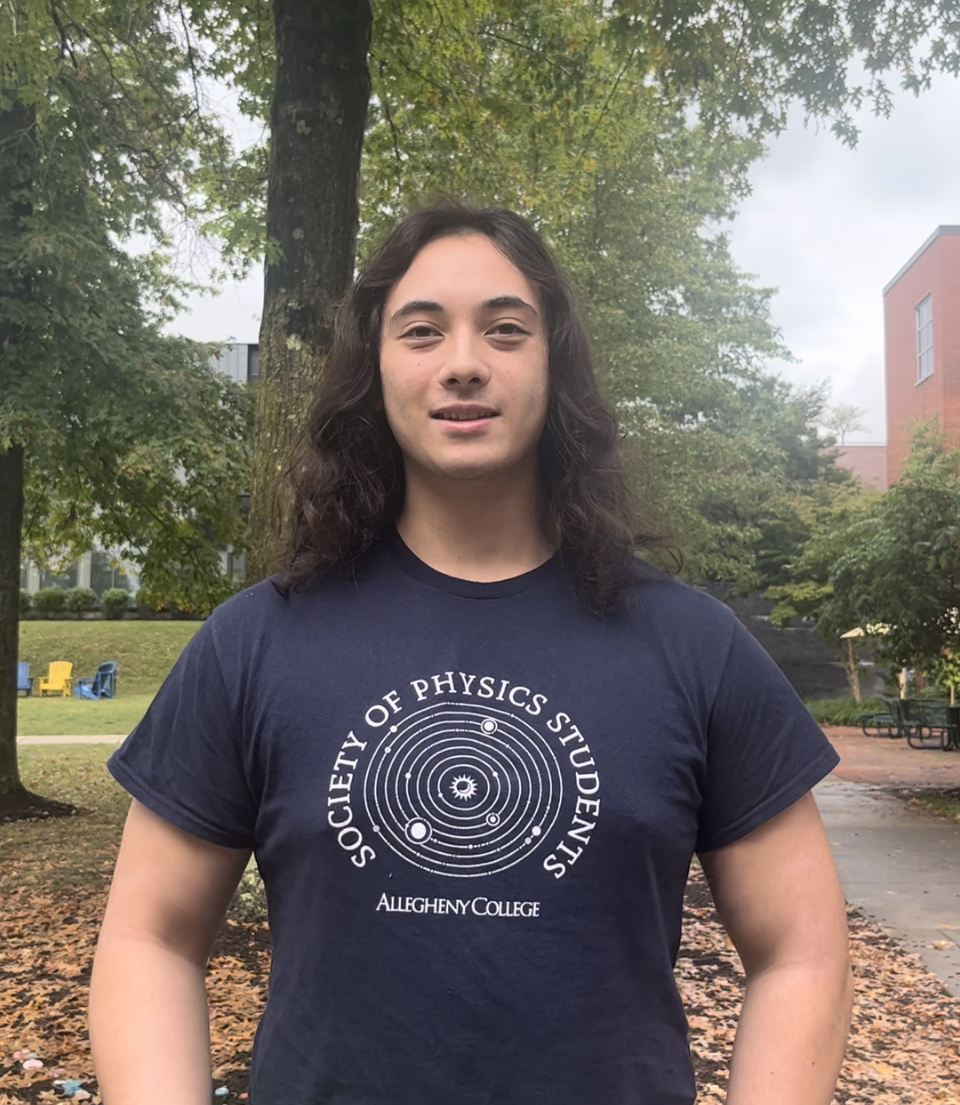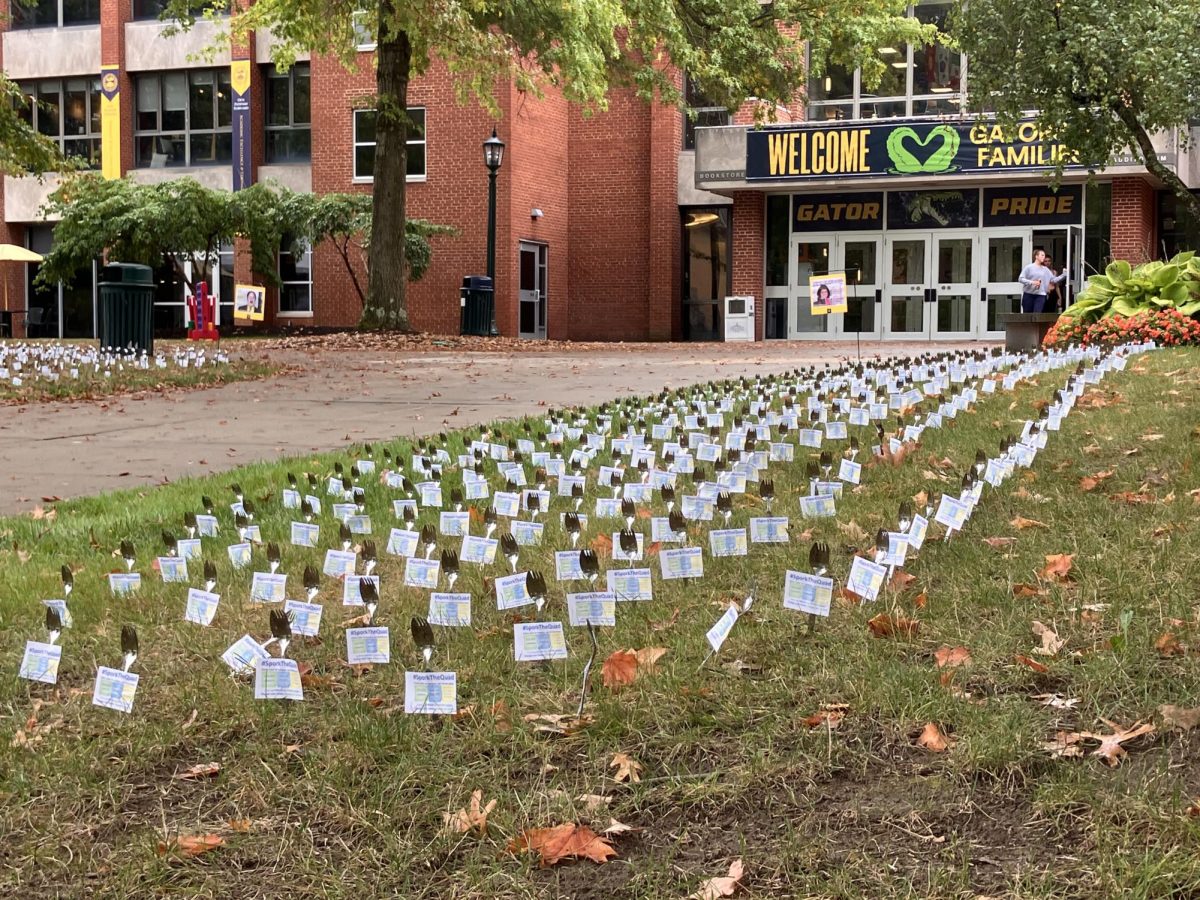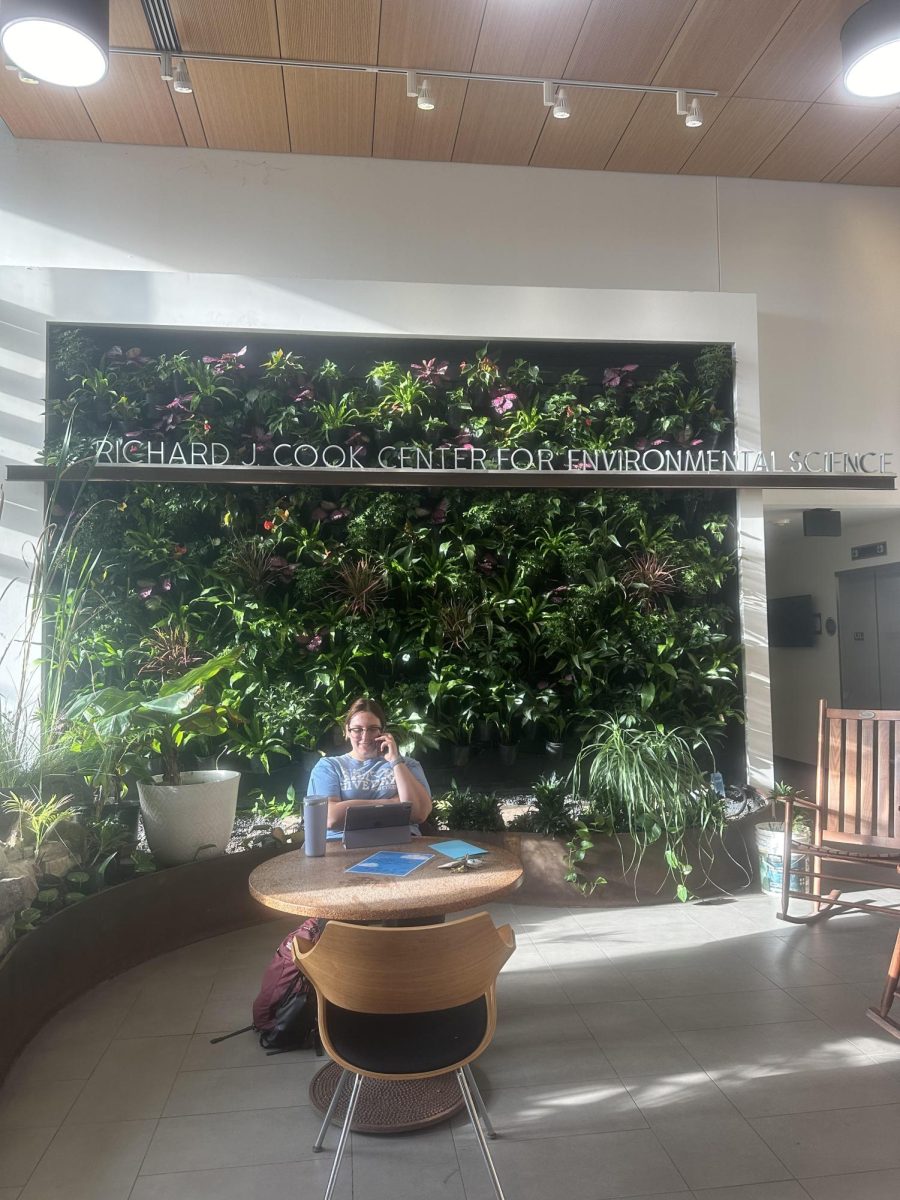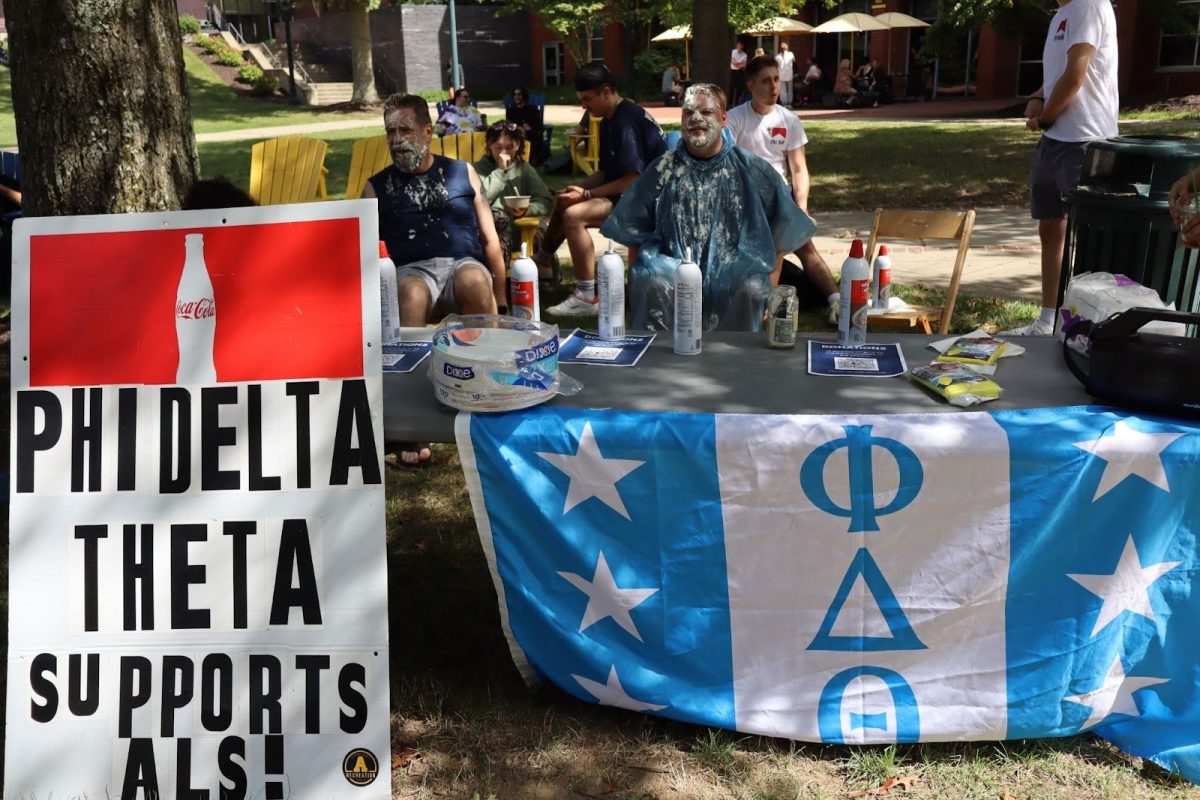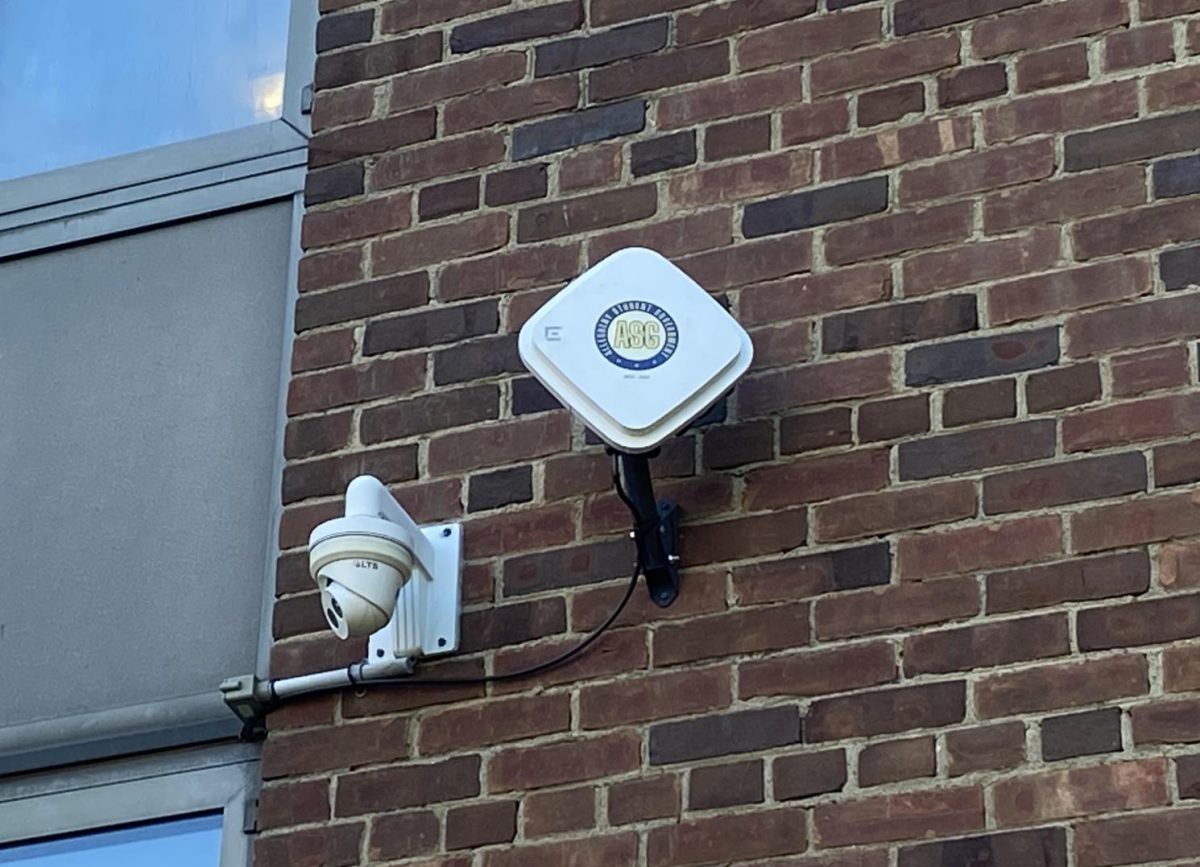The Food Recovery Center recently added a hydroponics tower to its food pantry. The center — created and stocked by Allegheny’s chapter of the national Food Recovery Network — was unveiled in September of last year on the third floor of the Henderson Campus Center, adjacent to room 301/302.
President of Allegheny’s FRN chapter London Dejarnette, ’24, explained that the hydroponics unit was always part of the plan for the center.
“Ultimately the goal is it produces fresh food for students,” Dejarnette said. “We’re going to have harvest events where students can come and harvest vegetables and take some home with them, free of cost obviously.”
The only hurdle in getting the unit was acquiring funding. FRN is a student-run club, meaning that club funds come from Allegheny Student Government. Dejarnette explained that additional funding came through from the Bonner Program, as FRN is also a site for Bonner funding.
After FRN had enough funding, the only thing left to do was assemble the unit and perform general upkeep.
“Hydroponics towers can be really fancy and confusing but this one is intended for homes,” Dejarnette said. “It has the capacity to grow a lot, and in five weeks.”
Hydroponics is the technique of growing plants using a water-based nutrient solution rather than soil, according to the U.S. Department of Agriculture. The appeal of adding one to the FRC came from concerns that Dejarnette and other board members heard from fellow students.
“We don’t have any sort of formal partnership with the Carrden right now,” Dejarnette said. “The biggest gap that we tend to fall into is not having fresh food options, but it’s also in the highest demand.”
Much of the FRC stock is collected from Brooks or gleaned from local resources, but has included produce from the Carr Hall garden in the past.
No matter the source, much of the food stocked in the center is gone by the next day, Dejarnette explained — the most recent restock saw just over 70% of refrigerated goods and 90% of dry pantry goods taken during the first day.
“A lot of that could be indicative of the fact that students recognize that we are restocking so sparingly,” Dejarnette said. “If we had a consistent funding source that wasn’t so hit or miss, the consistent stock would probably leave students feeling more secure over time and don’t feel like they have to get as much food as possible when it is made available to them.”
A new accreditation for the college may help keep the center consistently stocked. Announced at last week’s ASG meeting, Allegheny is now designated a PA Hunger-Free Campus. The initiative is intended to “build a coalition of colleges and universities focused on addressing hunger and other basic needs for their students,” according to the PA Department of Education website.
“There were a couple different criteria that you had to fulfill and a lot of what we were doing last year was trying to fulfill this so that we can get the accreditation,” Dejarnette said of the initiative. “The other thing too is that a ton of our competing schools already had the accreditation and a lot of schools that students are leaving here to go to have it, and that was pretty indicative of maybe some gaps in student access.”
FRN’s commitment to equitable student access is the reason behind some of FRC’s structures. For example, though Dejarnette’s research for their senior comprehensive project through the FRN site focuses on what type of students are using the center and what approaches are working to get them there, there is no student-by-student logging in the center.
“Some food pantries at other colleges — when we were trying to figure out our model for this — would require you to check in, write what you took,” Dejarnette said. “I think that there is a clear inventory purpose of that, and that would probably be really helpful honestly, but again our primary concern is it being a resource that is not daunting.”
The data on campus-wide food security is forthcoming: The food insecurity survey distributed by the college — which was also one of the criteria for meeting the PA Hunger-Free Campus distinction — will be presented soon, according to Dean for the Student Experience Ian Binnington.
Dejarnette’s research will also be completed soon. Part of what Dejarnette was interested in specifically was income as it relates to the FRC. From their own food insecurity survey completed earlier this semester, they also noticed that some students were wary of taking from what seemed like a limited supply of food in the pantry.
“I think that not only does that identify that maybe we need to be doing more as far as communicating with students, like ‘Hey, this is for literally anyone, it doesn’t matter if you’re poor, it doesn’t matter if you’re wealthy; if you don’t have food for any reason that is in line with what your needs are, please get food from the resource center,’” Dejarnette said. “But I think it also indicates that higher-income students are seeing that other students maybe need food more than them and I think that to me is also pretty significant because it means that it’s so visible. It’s something that maybe students who don’t have lived experience are really aware of, and that’s not super typical for food access issues.”
Through this semester, Dejarnette explained, FRN hopes to host more events, including harvesting events as a way to acquaint students with the new hydroponics unit. Dejarnette, as president of the chapter and a senior, is also focused on transition of power within FRN.
“We really do have really great foundations right now,” Dejarnette said. “Even just materials-wise, we have the fridge and we have this hydroponics tower and those two things alone have the potential to really change the way that students are accessing food on this campus.”
Categories:
FRN adds hydroponics system
Story continues below advertisement
0
More to Discover
About the Contributors
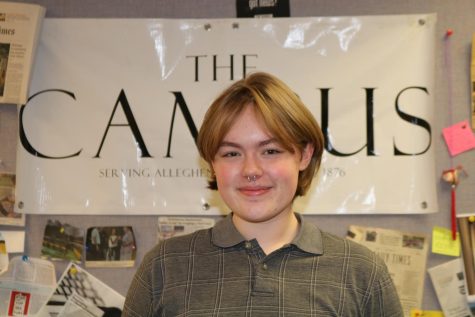
Sam Heilmann, Opinion Editor
Sam Heilmann is a sophomore from Johnstown, PA. She is majoring in Communications. This is her second year on the Campus staff, and her first as Opinion Editor. When she isn't writing for The Campus, she enjoys painting, listening to music and spending time with her friends.

Anna Westbrook, Editor-in-Chief
Anna Westbrook is a junior from the Washington, D.C. area. They are majoring in Environmental Science and Sustainability with a concentration in law & policy and a minor in Political Science. This is their third year on staff; they were first a News Writer, then served as News Editor, and now as Editor-in-Chief. In their free time, Anna likes to read, play the piano, go on camping trips with their friends, and drink a copious amount of coffee.



